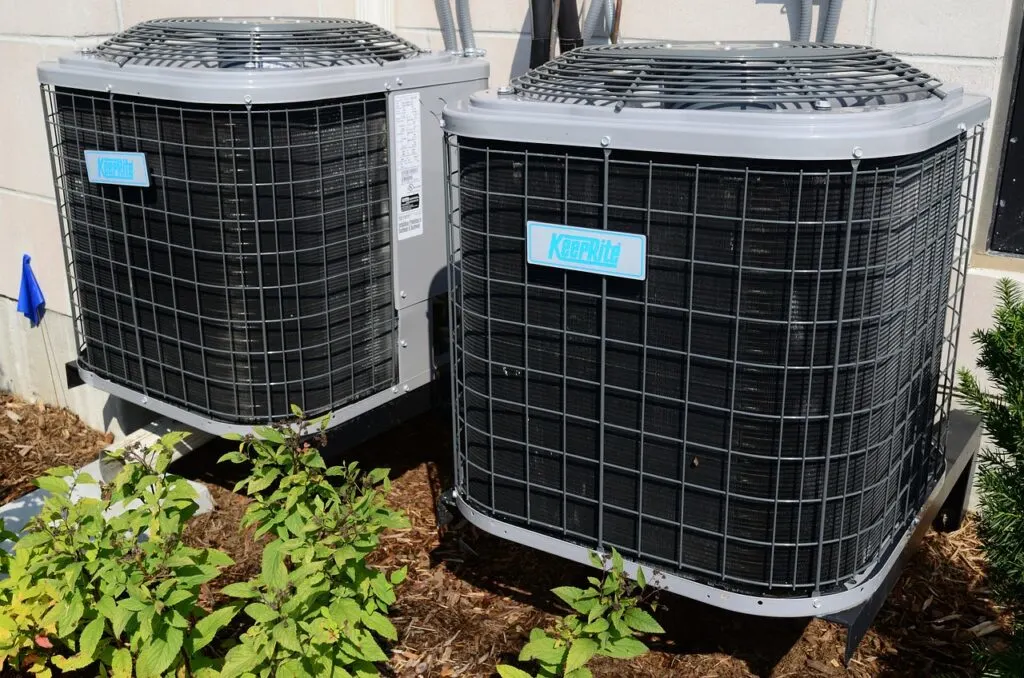This post may contain affiliate links. I only recommend products I use and love. Read the full disclosure here
Last Updated on November 20, 2024 by Alaina
The Importance of HVAC Efficiency in Your Home
In today’s world, energy efficiency is crucial, especially when it comes to maintaining a comfortable home environment. Your home’s heating and cooling systems are responsible for a significant portion of your household energy use. In fact, nearly half of the energy consumption in a typical American household is dedicated to heating and cooling operations, underscoring the importance of making these systems more efficient.

Improving the efficiency of your HVAC system not only helps in reducing energy bills but also minimizes environmental impact. This is particularly important as we strive towards more sustainable living practices. The benefits of optimizing your system are manifold, and taking steps to enhance its performance can be both cost-effective and environmentally responsible.
An efficient HVAC system also leads to improved indoor air quality, contributing to a healthier living space. By ensuring your heating and cooling systems work efficiently, you can enjoy a more comfortable home environment. Making these improvements is an investment that pays off in comfort, savings, and sustainability.
Windows: A Major Factor in Energy Efficiency
When examining home energy efficiency, windows play a critical role in the equation. According to data from Energy.gov, up to 30% of a home’s residential heating and cooling energy is lost through windows. This means that improving the insulation and sealing around windows is a key strategy for enhancing the overall efficiency of your HVAC system.
Energy loss via windows occurs due to inadequate insulation or poor sealing, allowing conditioned air to escape and outside air to seep into your home. Simple solutions, such as using double-paned windows or applying weather-stripping, can make a significant difference. These measures not only support HVAC efficiency but also enhance the overall comfort of your home by maintaining more consistent indoor temperatures.
In addition to insulation techniques, installing energy-efficient window coverings can further reduce heat exchange. Options like blinds, shades, or thermal curtains can help maintain desired indoor climates. This not only supports the functionality of your HVAC system but also reduces reliance on it, leading to lower energy bills and a more sustainable home environment.
Upgrading Your HVAC System
One of the most effective ways to boost the efficiency of your HVAC system is by upgrading to modern, energy-saving models. The United States Department of Energy indicates that updating outdated heating and cooling equipment can lower energy consumption by 20% or even more, depending on the current condition of your setup. Investing in newer, more efficient technology pays dividends in energy savings and improved comfort levels.
When selecting new equipment, it’s essential to consider models that carry high energy efficiency ratings and have reputable certifications such as Energy Star. These units operate more effectively, significantly reducing the amount of energy needed to heat or cool your home. Over time, the savings generated from decreased energy usage will help offset the initial costs of purchasing advanced HVAC systems.
Adopt Smart Heating and Cooling Practices
Often, small changes in your daily routines can lead to substantial improvements in HVAC efficiency. Utilizing programmable thermostats is a straightforward method to optimize heating and cooling cycles to match your lifestyle. This smart approach ensures efficient energy use, maintaining comfort when you’re at home while reducing power consumption during unoccupied periods.
Smart thermostats can be programmed to adjust temperatures in response to the time of day, specific weather conditions, or even your daily schedule. This level of control allows further fine-tuning of your HVAC operations, ensuring the system is only functional when necessary. By adopting these technologies, homeowners can achieve a comfortable indoor environment while minimizing energy use and reducing their carbon footprint.
Enhancing Insulation Throughout Your Home
Insulation is a critical component of an energy-efficient home. It serves to regulate indoor temperatures by preventing heat loss during colder months and heat gain during warmer months. By effectively insulating your home, you can reduce the burden on your HVAC system, leading to substantial energy savings over time.
Look for areas in your home that may need additional insulation, such as attics, walls, and floors. Each of these spaces can be sources of energy loss if not properly insulated. By targeting these problem areas, you can ensure that your heating and cooling systems operate efficiently, ultimately prolonging their lifespan and enhancing your home’s coziness and warmth.
It’s also important to consider the use of eco-friendly insulation materials, which provide the dual benefit of improving efficiency while being sustainable. With advancements in technology, materials such as recycled denim or wool offer comparable or superior performance to traditional insulation options. Boosting your home’s insulation thus contributes to an energy reduction, saving you money while supporting environmental conservation efforts.
